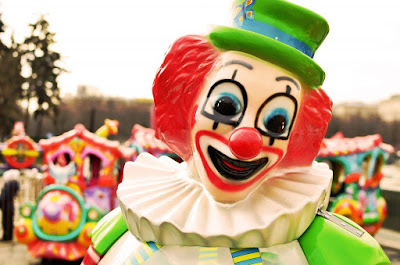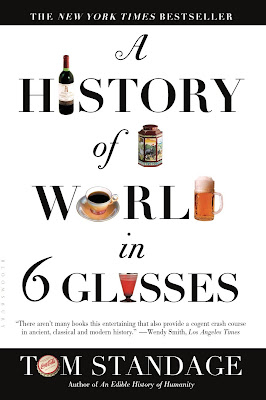Never touch.
I. Introduction
First brewed in 1844 by German immigrants in Milwaukee,
Wisconsin, today’s beer has long claimed that it was awarded the title
“America’s Best” at the 1893 World’s Columbian Exposition, launching it into international
fame – the fact that there seems to be no evidence to back this claim being of
no matter (so it is with legend). Originally called Best Select,
this beer would be sold in bottles tied with blue silk ribbons around the neck
from 1882 to 1916, when the demands of the war economy forced the ribbon to
migrate to the label alone.
Surviving Prohibition through manufacturing cheese, soda,
and malt extracts, (products whose facilities were sold in 1933 to Kraft)
today's brewery shot off the block in 1933 when beer-making was again legal and
by 1977 it was the third best-selling beer in the United States, peaking at 18
million barrels a year. The 1980s left the brewery in the cold,
unable to compete with emerging international superpowers and rapidly declining
sales and frequent turnovers in ownership led to the unthinkable in 1996 – the
headquarters had left Milwaukee for San Antonio, Texas, where they would stay
until moving in 2011 to Los Angeles. By 2001 sales had fallen below one million
barrels and things looked very dour indeed for the brewery until the dawn of a
new type of human being – the hipster.
The value of the company increased until 2010 when it was
purchased by C. Dean Metropoloulos, owner of Hostess brands, for a quarter of a
billion dollars (US). The next year a crowdfunding campaign raised
$200 million before a US Securities & Exchange decision to halted effort,
ending an attempt to bring the company back to its roots. In 2014
TSG Consumer Partners, led by Eugene Kashper, purchase the brewer and its
labels, moving the home of the owners not to Russia, as many news sources
originally reported, but San Francisco (corporate headquarters, however,
remained with the brewing facilities in Los Angeles). In 2015, in a
gesture towards the brewery’s roots, it opened a new facility, the Pabst
Milwaukee Brewery and Taproom. Built in the frame of a former Methodist church,
the brewpub offers not only its
best-known concoction, but long discontinued brews of yesteryear.
Today on Pickled Eggs & Cold Beer we’re considering
the beer that first perfected marketing without marketing, the brand that
supports not only sports teams but fine artists, the beer that brings together
the blue-collar throng with the popped collar crowd, a beer whose family of
products are entirely contract-brewed.
Today's Theme is Mamie Smith's Jazz Hounds' 1921 "Old Time Blues"
II. Our Positively Precious Guest, Adam Kennedy
 |
| Dr. Smith, Mr. Kennedy, and Mr. Clayman Share some icey-cold hipster beer. |
BeerAdvocate: 2.93 of 5
RateBeer: 1.84 of 5
Untappd: 2.79 of 5
ABV: 4.6%
Origin: Originally Milwaukee, Wisconsin
Ingredients: Water, corn syrup, 6-row barley, Pacific and imported hops
Cost: $ (though sometimes spikes in upscale bars feeding on the hipster chic phenomenon)
IV. Our Reviews and Talking Points
Appearance: Golden, translucent, pale, carbonated with a head that fades rather quickly.
Aroma: Very mild skunkiness.
Flavor: Inoffensive, very middle of the road lager that pairs well with almost anything.
Mouthfeel: Some slight aftertaste, watery and light, goes down easy.
Authenticity, Marketing, and Other Factors: Traditional marketing was impressive and omnipresent, contemporary marketing is largely marketing without marketing. Real authenticity is hard to measure - Pabst no longer makes their own beers but rather contracts them out, and even before that had moved their centers of production out of Wisconsin. Still though, doesn't really try to be anything it isn't.
Overall: AK gave PBR, the beer of his soul, a 4.85 of 5; Clayman gave it a 3.67 of 5, and Eric gave it a 3.25 of 5. Overall, Pabst Blue Ribbon got a 3.92 because AK really likes it. Really really really.
V. Our Sponsors
This episode was sponsored by two wonderful local businesses:
Leben Farms of Abingdon, Virginia
Providing Local Fresh Vegetables in Weekly Boxes to community-supported agriculture members (CSA) in Southwest Virginia and East Tennessee using organic and regenerative practices to grown nutrient dense food. Community-supported agriculture is a food production and distribution system that directly connects farmers and consumers. In short: people buy "shares" of a farm's harvest in advance and then receive a portion of the crops as they're harvested. Check them out on Facebook or Instagram.
Glade Pharmacy in Glade Springs, Virginia
33472 Lee Hwy, Glade Spring, VA 24340
Locally owned and managed, providing the highest quality pharmaceutical service in the Emory/Glade Springs area.
VI. Plugs
As always, please support local breweries and live music - in particular, please check out :
Bluefield, West Virginia and Virginia
Bristol, Virginia
Wyandotte, Michigan
Pound, Virginia
Wytheville, Virginia
Abingdon, Virginia
Abingdon, Virginia
The Best Thing on the Internet
Abingdon, Virginia
VII. Recommended Reading and Viewing
Patrick Gillespie. June 30, 2015. "Is PBR Still Cool? America's Hipster Beer is Slowing Down." CNNMoney.
Jacob Goldstein. May 26, 2010. "Pabst Blue Ribbon: $250 Million in Hipster Gold." Planet Money. NPR.
Kristin Hunt. August 18, 2013. "15 Things You Didn't Know About PBR." Thrillist.
Tara Nurin. May 24, 2018. "Pabst Blue Ribbon Takes a Jab at Trump with Its America Dreaming Campaign." Forbes.
Al Shilton. August 5, 2014. "Have We Reached Peak PBR?" Outside.
Garnett Snyder. January 23, 2012. "China Debuts $44 Bottle of Pabst Blue Ribbon." LA Weekly.
Robert Theriot. "Pabst Blue Ribbon." Louisiana Beer Reviews. YouTube.
Rob Walker. June 22, 2003. "The Marketing of No Marketing." New York Times Magazine.
VIII. Selected Advertisements
c. 1979
c. 1950s
c. 1950s
c. 1950s or 1960s
c. 1977
c. 1978
c. 1983
c. 1997
IX. You're Damn Right We Didn't Forget Johnny Russell's "Rednecks, White Socks, and Blue Ribbon Beer"
From the Wilburn Brothers' Show (1973)
















































